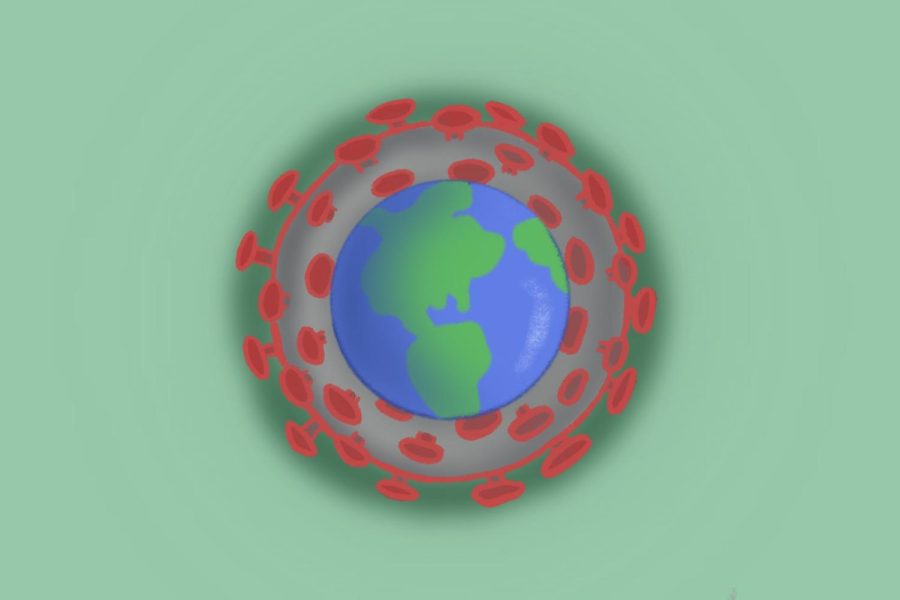The Omicron strain
First appearing in South Africa, the Omicron strain of COVID-19 has caused pandemic restrictions to increase once again as the holiday season begins. Scientists continue to study the strain and its patterns as it spreads across the globe.
December 8, 2021
As the pandemic approaches its second birthday, new strains of the COVID-19 virus continue to appear. Most recently, scientists have detected a strain with a unique series of mutations and an unknown origin that sets it apart from the other known strains currently circulating. Following the Greek alphabet, with omissions to avoid cultural conflicts or confusion, the new strain holds the name Omicron.
As scientists have not tracked the strain long enough to conduct thorough and extensive research, the strain’s ability to infect others as compared to variants such as Delta remains unknown, although evidence suggests that it can transmit faster than the Delta variant. Similarly, the level of danger the strain poses to people also remains unclear. However, the appearance of Omicron has cemented the idea in several minds that COVID-19 will remain in circulation among the population indefinitely.
“The COVID virus will not disappear. We will have to learn how to cope with it as we do with influenza. We may need periodic booster doses of COVID vaccine, but that interval has yet to be determined,” Dr. William Schaffner, infectious disease specialist from Vanderbilt University, said.
In response to the variant’s quick spread and its unknown traits, the World Health Organization named Omicron a variant of concern. Paired with worries surrounding travel during the holidays, several countries have imposed restrictions on or completely locked down travel. Despite these restrictions, the first case of Omicron appeared in the United States on December first in California, traveling from South Africa where scientists first identified the strain.
While the future of the Omicron variant remains uncertain, the spread of the Delta variant and other strains of COVID-19 throughout the United States, with nearly 50 million cases in the past month and over 780,000 deaths in the same time frame.
“With both my brother and I being high risk, it’s just concerning to see all of the new discoveries and people start caring less. I suppose that’s kind of inevitable as people get used to it, however masks, social distancing, not being in large crowds, [this idea] seemed to exited a lot of people’s minds,” magnet junior Claire Stobo said.
Health officials continue to recommend vaccination as the best way to protect from COVID-19’s dangers and slow the spread. As they become available, the Center for Disease Control also recommends booster shots for those already vaccinated and over 18 years of age. Combined with other familiar measures such as wearing masks, people can decrease the rate of infections and consequently the appearance of new variants.







